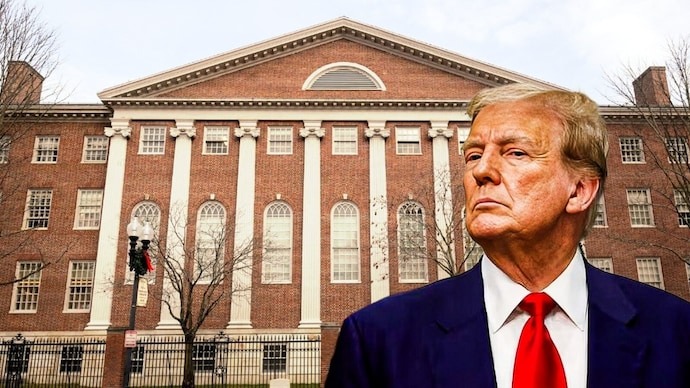The Trump administration has revoked Harvard University’s certification under the Student and Exchange Visitor Programme (SEVP), barring the institution from enrolling foreign students. The Department of Homeland Security (DHS) issued the revocation on May 22, with immediate effect. This move impacts thousands of international students, including nearly 800 from India, currently enrolled across Harvard’s schools.

Indian Students Among the Affected
According to Harvard’s International Office, 788 Indian students and scholars are part of the 2024–25 academic year. The sudden cancellation means all international students on F or J visas must transfer to other institutions or lose their legal status. Each year, around 500–800 Indians pursue education at Harvard.
Concerns Over Political Motivation
Ajay Bhutoria, former advisor to President Joe Biden, criticized the decision as politically driven and harmful to Indian students. He emphasized their $9 billion annual contribution to the US economy and their roles in tech and medicine. Bhutoria called the move an attack on students’ futures and aspirations, particularly those from cities like Mumbai, Delhi, and Bengaluru.
Allegations and Demands by Homeland Security
Homeland Security Secretary Kristi Noem accused Harvard of fostering an unsafe environment and alleged links with anti-American activism and Chinese paramilitary groups. The letter demanded that Harvard submit extensive records, including protest footage and disciplinary files of international students from the last five years, within 72 hours to be considered for SEVP reinstatement.
Harvard Responds
Harvard acknowledged the DHS order and reaffirmed its commitment to international students from over 140 countries. The university said it is exploring options to maintain its ability to host foreign scholars and students. The revocation comes days before the 2025–26 academic year and commencement ceremonies.
Criticism from Indian-American Leaders
Bhutoria called on the administration to reverse the decision and urged the Indian government and diaspora to advocate for affected students. He warned the action sends a discouraging signal to Indian talent and could push students toward other countries like Canada and the UK.
Wider Implications
The move may disrupt US-India academic ties and damage the appeal of American higher education among international applicants. Critics say it marks an alarming precedent where education becomes entangled in political agendas, potentially damaging the country’s global academic reputation.
